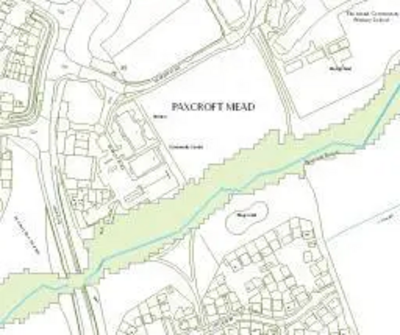Council still failing to get developer contributions.

Legal obligations on developers to provide community infrastructure are not being enforced by Wiltshire Council. Trowbridge councillor Jeff Osborn has been trying to get the council to take the problem seriously, and has been promised a complete list of the outstanding money owed to Trowbridge by November. In the south of the county there are no electronic records so planning officers are having to plough through paper records. "There is still the problem of liaison between Development Control, Legal, Finance and all the departments/sections that spend Section 106 money - housing, transport, education, open space etc," said Jeff.
Cllr Osborn also pointed out the importance of developer contributions in future: "As part of the Core Strategy work we need to ensure that developers provide as much S106 money as possible. In these times of austerity that is the only way we can fund infrastructure. The new Section 106 scheme - community levy or roof tax - will give a greater role for area boards."
...............................................
What is Section 106 funding?
When major planning applications are approved they're usually accompanied by a "Section 106" agreement. This sets out the community benefits and infrastructure developers are expected to provide from their profits.
For example on a large housing site the agreement may include provision of roads, cycleways, schools, open spaces, affordable housing and play areas.
Some of these the developers are happy to do - the estate needs a road system before houses can be be built and sold.
However some of the longer term commitments are more difficult, particularly those which may kick in after the properties are sold and the developer has no further interest in the site.
There is also a time limit on the funds, so if the local council doesn't demand them within a number of years the developers get to keep the money. A council may simply forget that an agreement has been made and fail to request the funds, for example for landscaping or for a contribution towards local education facilities.
Councils have a legal obligation to behave reasonably, so if after a few years the developers say, "We made this agreement but now we think it was asking too much - can we provide a smaller sum?", then they're liable to get a positive answer.
Mergers and take-overs between companies can also make it difficult to extract promised funding.
Wiltshire Council has admitted that of £19million committed under S106 agreements for large developments in recent years, only 3million pounds worth has actually been paid.
Back in June councillor Jeff Osborn requested the information on outstanding S106 liabilities to be given to area boards, so people could at least see where commitments were being broken.
Wiltshire Council refused to do that at the time, but the council's all-Conservative Capital Assets Committee agreed a rather weedy resolution, namely "That the Corporate Director, Resources, undertake immediate scoping work to address the issues raised with a view to identifying and implementing an action plan that will lead to a completed corporate Section 106 database."
The lack of urgency shown by the council means that communities will continue to be cheated out of what they're led to expect when planning permissions are granted. The problem was picked up by the council's Scrutiny Committee, which at its May 26th meeting voiced concern about the lack of progress being made by the council in getting a usable database set up.
It's extremely unusual for the scrutiny committee, which has a Conservative majority, to make any criticism of the council so 'voicing concerns' is as strong as it gets.
The committee was also unhappy about the way the council has not shown any interest in the Community Infrastructure Levy. This is a government proposal which would replace the Section 106 system with a more direct and comprehensible way of taking a slice of development profits to benefit communities.
...............................
A task group set up by the scrutiny committee produced its final report in November 2011. It noted that good progress had been made on setting up a database of S106 deals. However developers are still being let off the hook - in Malmesbury for example a report prepared for the area board discovered that, "£104,204 from a total £985,705 had not been received." Another problem is that even when the money is paid by developers it can get lost in the WC accounts - the council currently holds £21million of S106 funds.
The council wants to shuffle the responsibility for keeping up with outstanding S106s to the Area Boards, with town and parish councils doing WC's work by watching developments and shouting if agreed commitments are being evaded.
